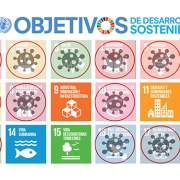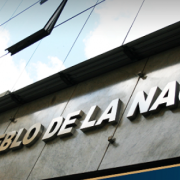Organizations and specialists call a “Social Anti-Corruption Agreement”
From Fundeps we adhere to the initiative of a group of civil society organizations and specialists in the pursuit of public policies that prevent and punish corruption with a focus on human rights.
“Below, we offer a google translate version of the original article in Spanish. This translation may not be accurate but serves as a general presentation of the article. For more accurate information, please switch to the Spanish version of the website. In addition, feel free to directly contact in English the person mentioned at the bottom of this article with regards to this topic”.
A diverse group of specialists and civil society organizations developed a “Social Anti-Corruption Agreement”, a document in which they identify a set of public policy proposals that Argentina should implement to ensure state capacities in prevention, detection and sanction of the corruption.
The document is available at www.acuerdoanticorrupcion.org y se encuentra abierto a adhesiones desde el miércoles 16 de octubre del 2019.
The Agreement sets the stage for a public debate focused on the impact of corruption on inequality, human rights and the quality of democracy. The reforms that are promoted are aimed at the different powers of the State.
The group that drives this initiative is made up of Roberto Carlés, Manuel Garrido, Ricardo Gil Lavedra, Natalia Volosin, ACIJ, Acción Colectiva, CIPCE, Directorio Legislativo, Poder Ciudadano, Cambio Democrático, CLADH, Democracia en Red, Nuestra Mendoza y Salta Transparente.
The document contains a total of 74 proposals, which are part of 16 thematic axes, presented in the following 6 sections: “A new national integrity system”; “Investigation and sanction of public and private corruption”; “Prevention of corruption in typically critical situations”; “Transparency policies”; “Institutional strengthening”; and “Citizen Participation.”
Among the thematic axes that are proposed are the reform in the field of public ethics, a new system of purchases and contracting of the State, procedural improvements for the prosecution of corruption, transparency policies in the financing of the policy, improvements in the mechanisms and control bodies, transparency in markets and financial flows, as well as the opening of instances of citizen participation in the fight against corruption.
Argentine institutions suffer from structural deficiencies, the product of which corruption affects the full validity of human rights, mainly in the most vulnerable sectors. This phenomenon, in which both the State and the private sector occupy a central role, impacts the quality and availability of public goods and services and undermines confidence in the institutions of democracy.
In order for these public policy proposals to be effective, the authorities must promote their implementation through the full participation of citizens, in a transparent manner and through a constant process of accountability. For this, it is essential to establish indicators that allow to know the evolution of these policies and their effective impact in the fight against corruption.
Accordingly, the Anti-Corruption Social Agreement is a call to all the actors of Argentine social life, and particularly to the parties, political referents and authorities of all the powers of the State, to adhere to this document and use it as a trigger for new debates, in order to generate the structural and long-term consensus that we need to reach for the construction of a country with less corruption and, in particular, more just and equal.
From Fundeps we gave our support, add your membership.
Contact:
Nina Sibilla, ninasibilla@fundeps.org





